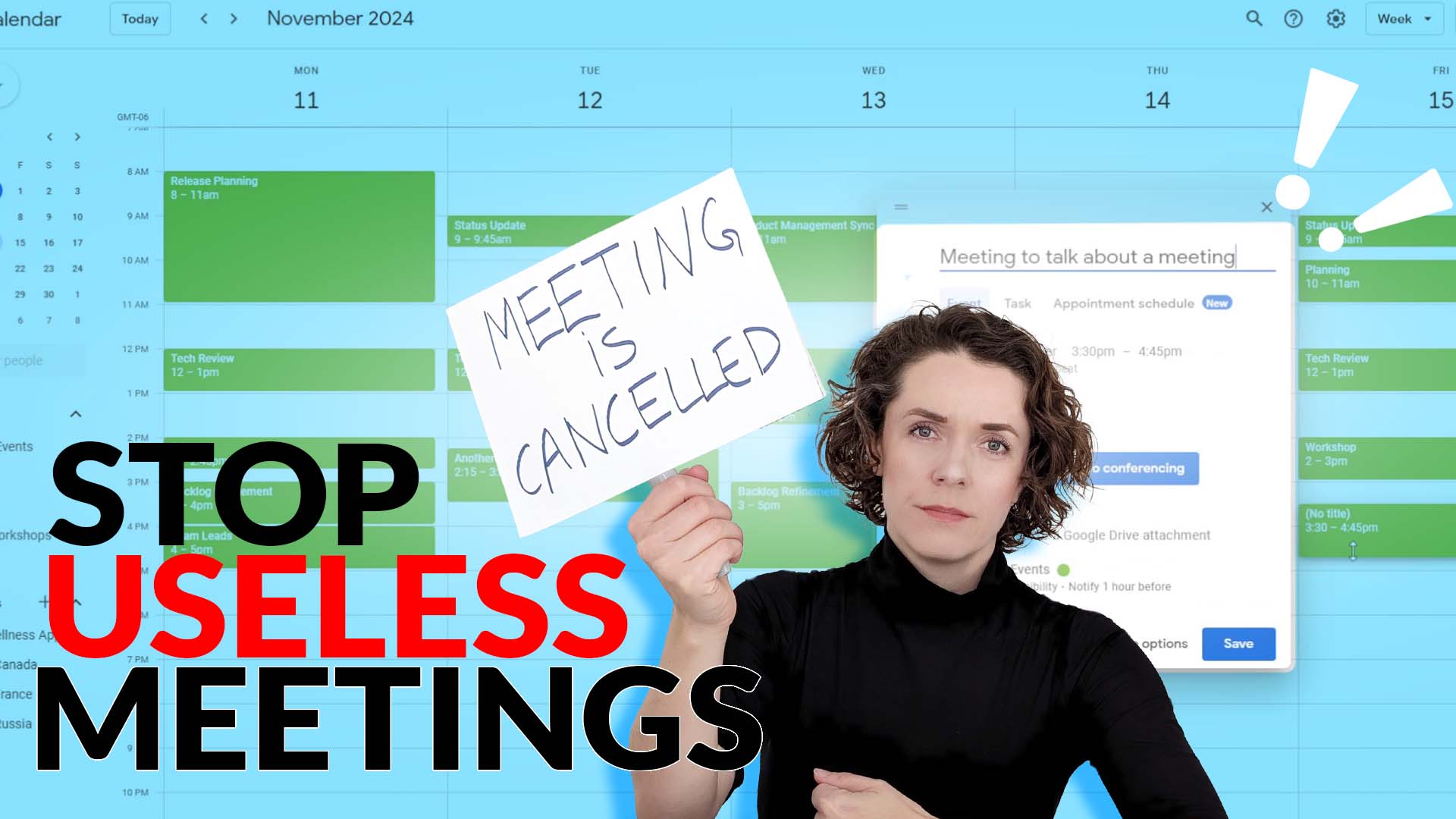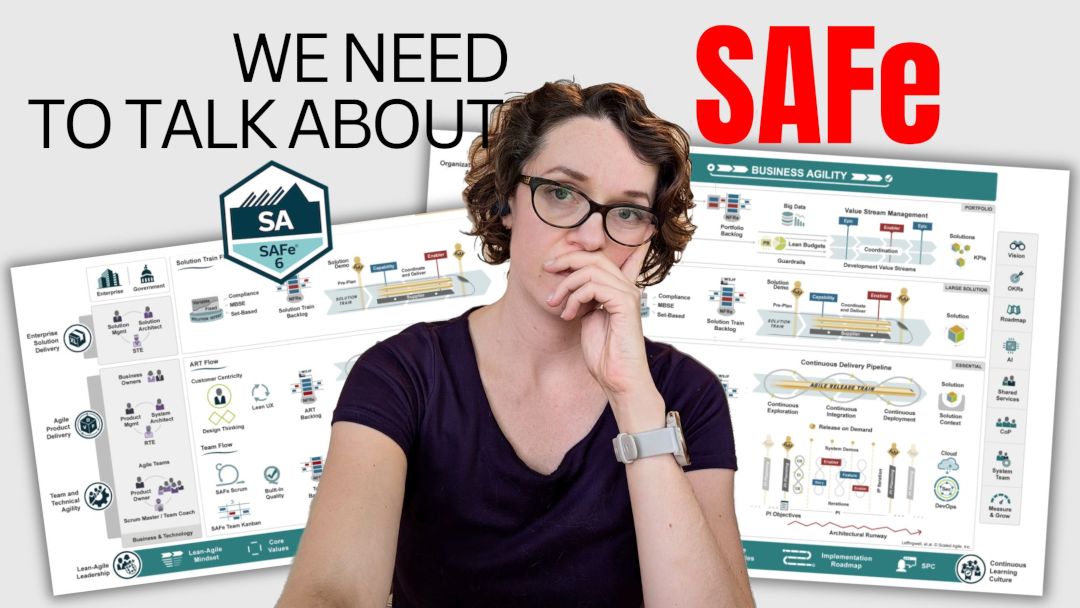Being a servant leader is hard because you really want your teams to succeed but you can’t just tell them what to do. To compensate for this, we as Scrum Masters often tend to offer plenty of solutions to our teams when we see them struggling. Unfortunately, while it might seem like the best approach when we give our teams all the answers, we are running a risk of creating negative effects on their long-term success.
In this article, I’d like to talk about what are the consequences of being an overzealous Scrum Master and what steps you can take to change that.
Previously I have talked about the misunderstood stance of a Scrum Master that we call “The Hero” and its effects on self-organization. While in that video I cover mostly the topic of impediments, here I’d like to expand on the Hero stance from a different perspective.
The Scrum Master’s Show
Have you ever attended a Sprint Event where the Scrum Master was talking most of the time? Whether it was a Planning, Daily Scrum, or Retrospective whenever there would be a short silence, the Scrum Master would interject with an idea?
I surely have. In some cases, I was that Scrum Master.
Most of the time it happens in Retrospectives, especially, when the team is a bit disengaged. A Scrum Master usually has plenty of awesome ideas to bring to the table.
At the end of the day, the whole Scrum process the team is following becomes just the Scrum Master’s show. It would not work if the host is not there. Here are some examples of that:
- No meeting gets scheduled or starts unless the Scrum Master is there to do it;
- Everyone looks at the Scrum Master whenever there is a tough question asked or a decision needs to be made;
- Scrum Master talks most of the time during any meeting, or Scrum Master talks at all during Daily Scrum;
- Scrum Master interrupts team members to rephrase what they said or finish their thoughts;
- Most of the improvement ideas are created, written down, and enacted by the Scrum Master.
Anything seems familiar? Anything you would add to this list?
Talk show or one man show?
As in the examples above, sometimes becoming a Hero might inadevertedly and completely take control away from the team. As we talked about impediments in the last video on self-organization, over solutioning can be another issue.
However, we might not even realize it is happening.
When the team is disengaged we are often faced with some lengthy uncomfortable silences during the meetings: no one shares their thoughts or ideas, people just wait for the meeting to finish, they are staring at a wall (actually happened to me in a Retrospective!).
Crickets…
And it is at that point that our solution-oriented self often comes out.
“The purpose of a Retrospective is to have some improvements identified and since no one is talking, I gotta give them something to go off of”.
We enter a vicious circle of overcompensating for the lack of discussion from the team.
- We start by filling in the silence in meetings with our ideas and taking notes in your own words because no one else does it.
- This often leads to sub-optimal solutions created by a single person without any discussion. While you might be the smartest Scrum Master in the world, you can’t be smarter than a cross-functional self-organizing team of professionals (I’m sorry you had to find out this way);
- Over time the team gets used to having someone always there to talk. It feels good especially when the team has to “discuss” some difficult topics;
- When people have ideas they usually never get a chance to express them as they know that their Scrum Master will rephrase or talk over it and they become reluctant to participate.
- The team becomes completely dependent on the Scrum Master, so the Scrum Master thinks that the team is just not made to be successful with self-organization;
- In the end, the Scrum Master doesn’t lead the team anymore but manages them as if they need constant hand-holding.
What the Scrum Master might not realize in this situation is that the team might need just a bit more time and guidance to speak up.
Silence is key
How do you combat this behaviour if you have found yourself in this situation? How do you get out of this vicious circle?
First, teach Scrum.
Self-organization is the key element of a successful Development Team. It means that you need to help everyone understand what is expected of them. In the context of Scrum it means being proactive, speaking up, solving your challenges yourself. That is pretty much a responsibility of anyone operating in Scrum.
Remember to remind everyone the purpose of each Sprint Event. If the end goal of a Retrospective is to have at least one action item to take into the next Sprint, the team needs to come together to do it by the end of the timebox.
Second, stop talking.
It is key to let the silence take over. If you are uncomfortable with long silences, count to 20 in your head before you say anything else.
Sometimes just a little time to think is all people need
Third, ask open ended questions only.
To help you refrain from solving, minimize the number of statements you make and replace them by open ended questions. You now might need those extra 20 seconds of silence to rephrase what you were going to say.
Fourth, keep at it.
You are going to have some painful meetings. If your team is used to you talking, they will not even understand what is happening. They might even think that you’re not feeling well.
It will take some time for the team to get used to the new self-organization, so you need to be patient and let it happen. Otherwise, you deprive your team of achieving their full potential.



